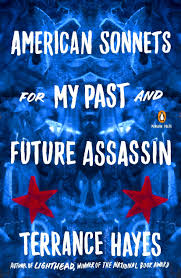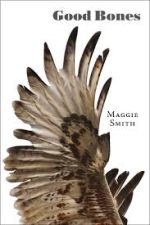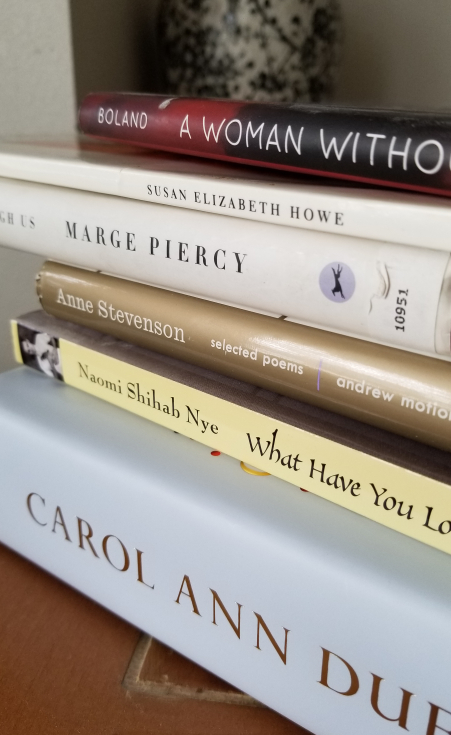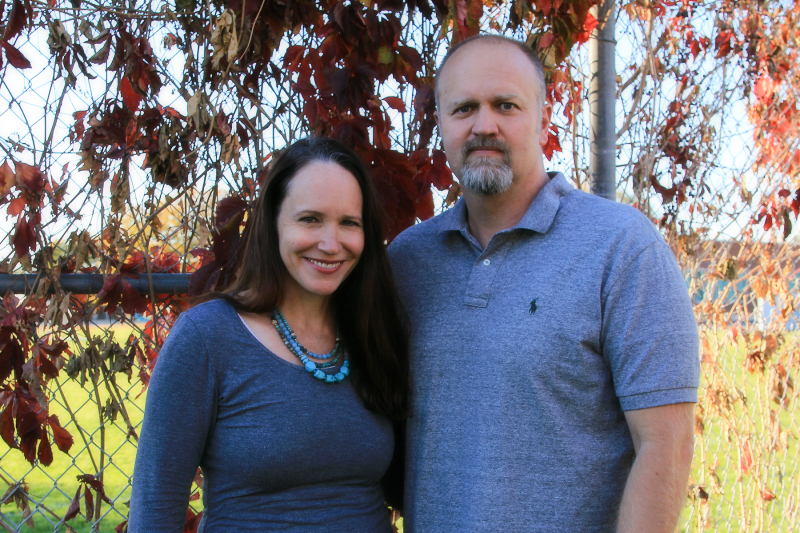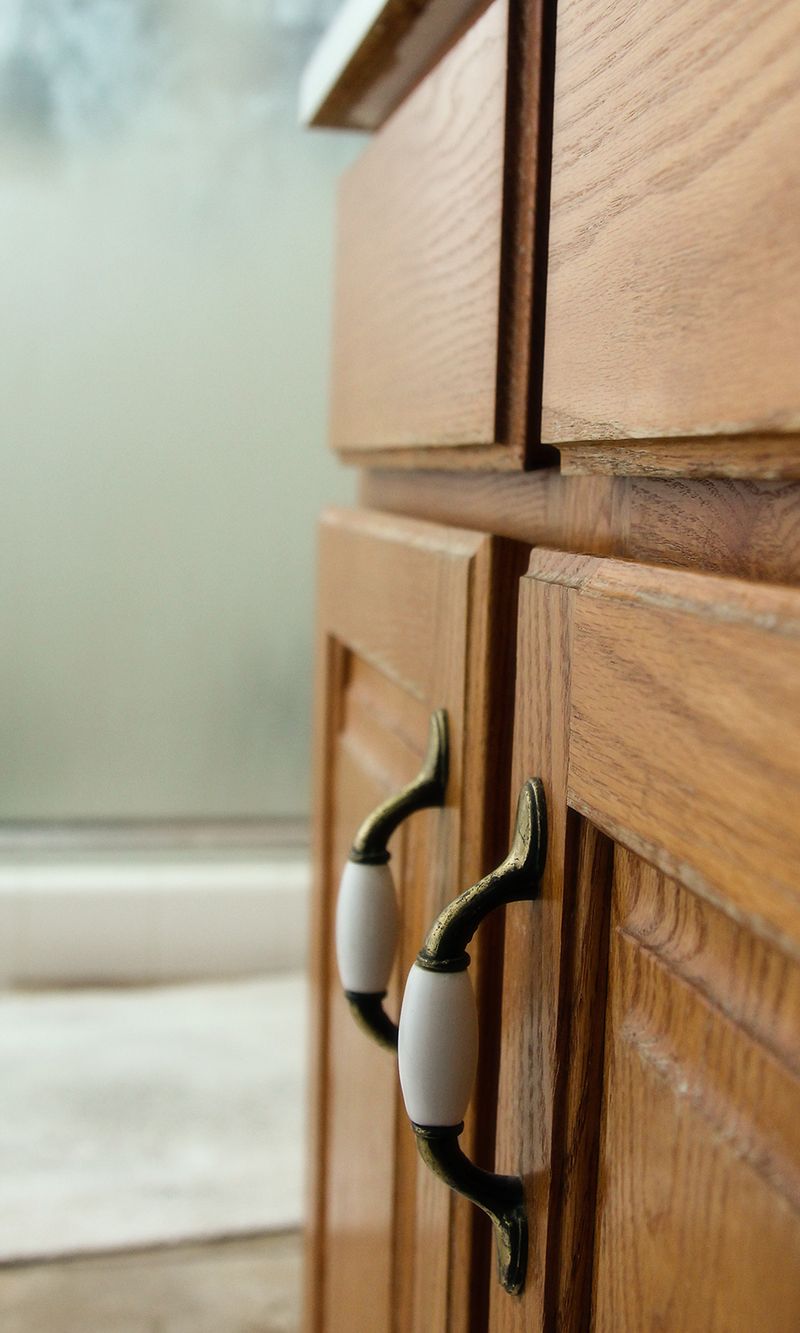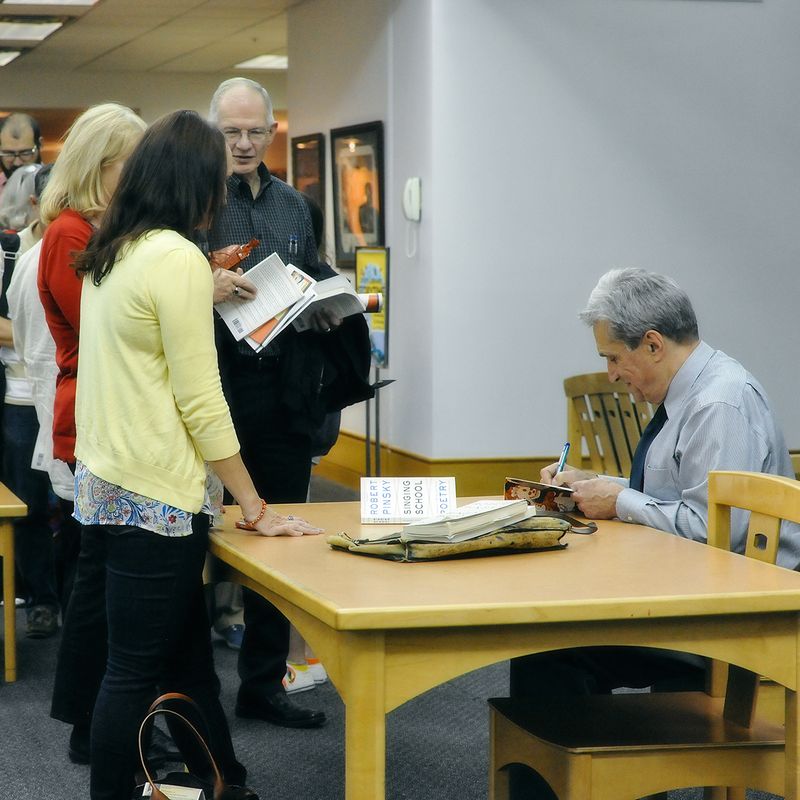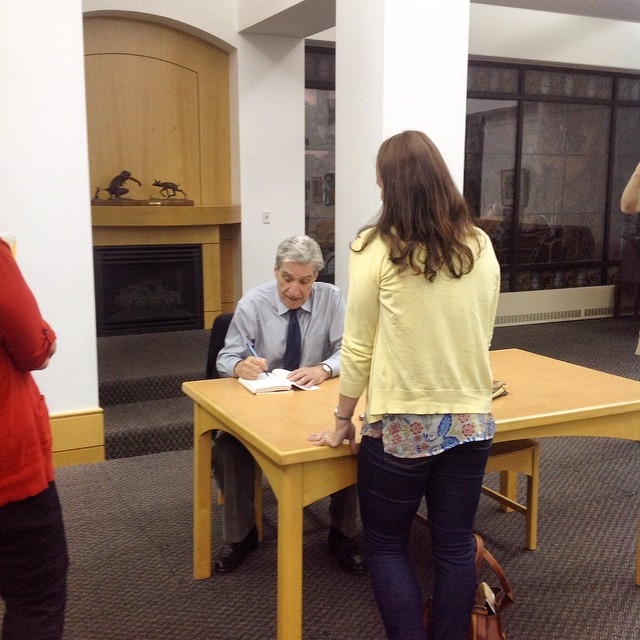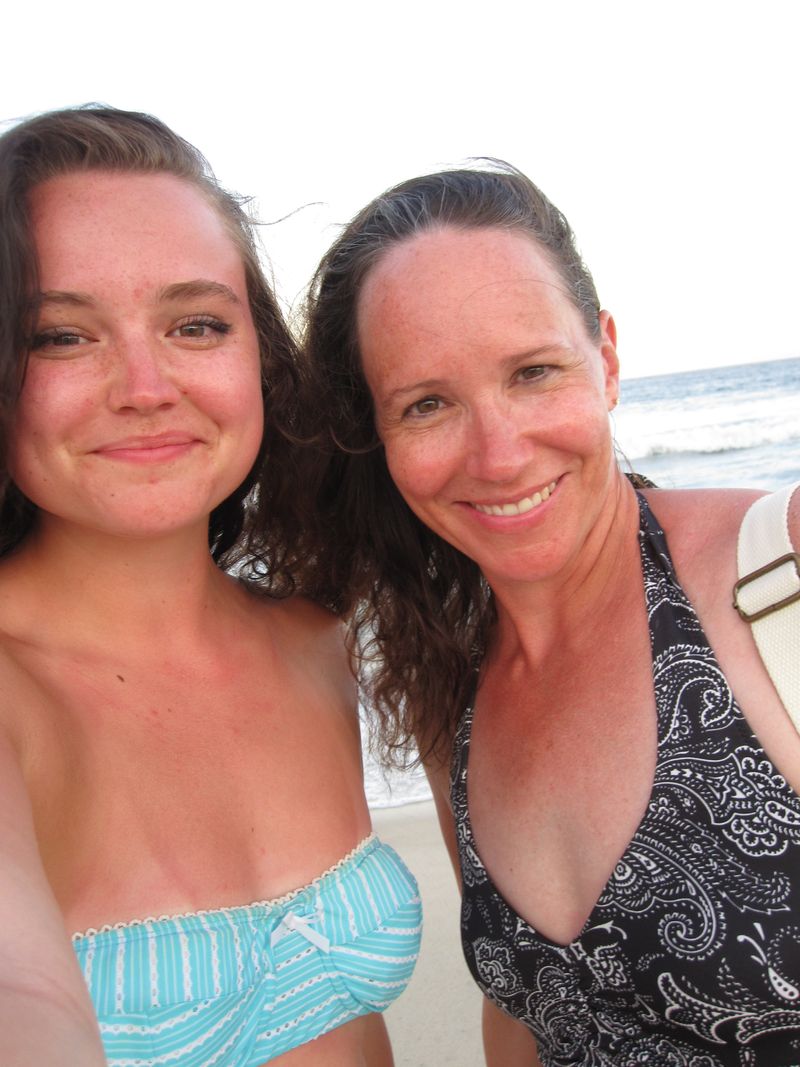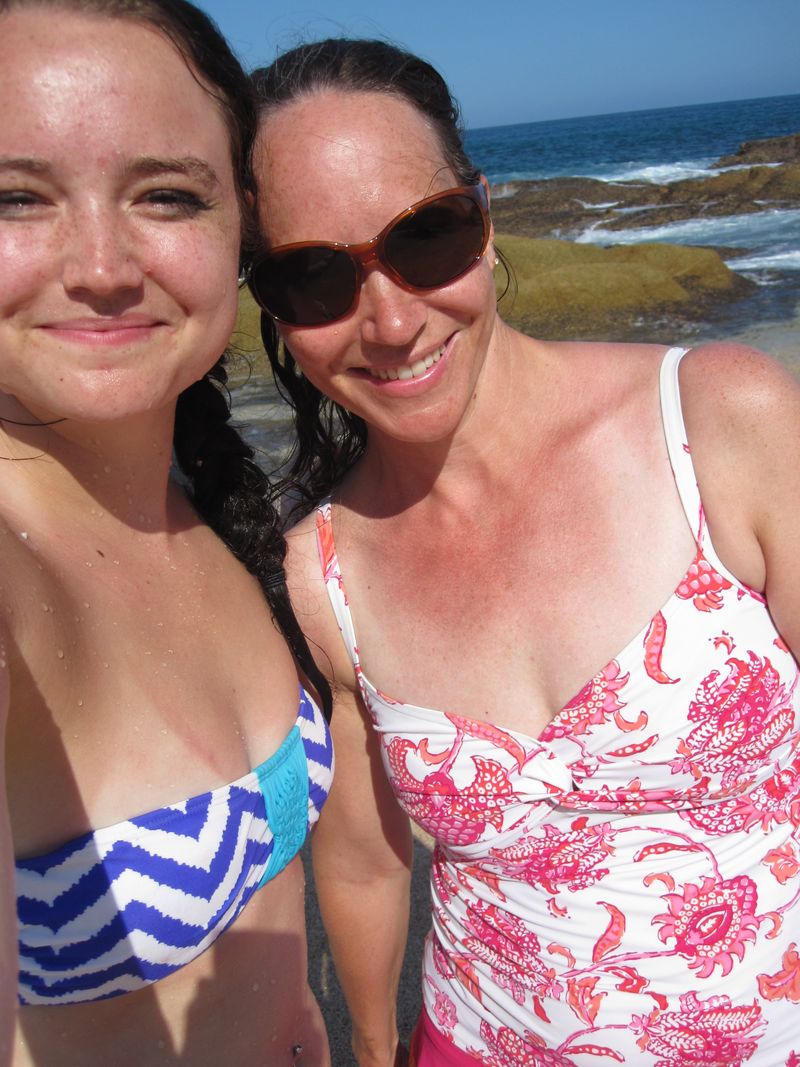31 Poetry Recommendations for The Sealey Challenge
Friday, August 02, 2019
One of my goals for 2019 was to read a print version of some poetry every single day. I have been off and on with this goal, mostly off for the past three weeks or so.
But August is a challenge month done by the poet Nicole Sealey. Her challenge is to read a book of poems every day for the entirety of August. I LOVE this idea and am going to play along, except I know I won't finish an entire book every day. So I'm going to reestablish my poetry-every-day habit, and in the spirit of social media challenges, I am going to share more on my social media about poetry or poems or the poems I read and love.
HERE is an explanation of the challenge and a list of 31 poetry titles recommended by contemporary poets. It is a great list and a good place to start.
But I thought I would also share some of my recommendations, so here it is: Amy's list of 31 poetry titles you might want to read in August. Even if you just picked up ONE book of poetry from your library (it's in the 811 section of Dewey) and read only one poem a day, you might just find you love poetry too.
- My Mother Was a Freedom Fighter by Aja Monet. The first book I’m going to read. “Aja Monet’s ode to mothers, daughters, and sisters—the tiny gods who fight to change the world.”
- Calling a Wolf a Wolf by Kaveh Akbar. The second book I’m going to read. “The work here means to go out on limbs, be it to fling blossoms, chew fireflies, or push old nests into the river once the rearing is done.”
- A Woman without A Country by Eavan Boland. The third book I’m going to read. I started this one a couple of years ago, but only got a few pages into in before I picked up something else.
- Any edition of The Best American Poetry anthologies. These look like they are long compared to other poetry books, but there are also two introductions (one by the series editor and one by that year's editor) and quite a bit of biographical info about each of the poets, so it's not as long as you think. I buy my own copy of this book every year because I love finding both new poets and new poems by poets I already love. It is a great way to immerse yourself in contemporary American poetry and get a sense of what that means.
- Love Poems (for Married People) by John Kenney. This is sort-of funny poetry. Funny because it's true, so it's also painful. But funny. (As an example: One of the poems is titled "When Are You Going to Turn off Your Kindle?")
- Power Made us Swoon by Brynn Saito. Woven through all of the poems in this book are poems about Warrior Woman, who is "descended from the dark/river of women"; the rest of the poems are disparate but unified by Warrior Woman. One of my favorite lines: "I don't know whose story/has taken up residence in my body, what ghost."
- Anything by Mary Oliver. She is accessible (meaning you won't just think "huh?" after every poem) and wise and her poetry will make you despair over the crumbling natural world while you simultaneously remember just how glorious and beautiful it is.
- Night Sky with Exit Wounds by Ocean Vuong. His poem “Someday I’ll Love Ocean Vuong,” which is in the collection, is in my top-20 all-time favorite poems. “The most beautiful part of your body/is where it’s headed. & remember,/loneliness is still time spent/with the world.”
- Magdalene by Mary Howe. Poems through Mary Magdalene's perspective.
- American Sonnets for my Past and Future Assassin by Terrence Hayes. This book will challenge any assumptions you've made about yourself being "woke." Seriously, I want everyone to read it. It is political but deeply personal (if you can even separate the two).
- The Mobius Strip Club of Grief by Bianca Stone. Poems set in a purgatory that is part burlesque, part feminist poetry stage. The ghosts of the dead can do scandalous things. This is something that contemporary poetry can do in the hands of skilled poets, create something heretofore unimagined and make it breathe.
- Dizzy in Your Eyes: Poems about Love by Pat Mora. In theory this is a collection of poetry for teenagers, but if you've ever been a teenager, or a teenager in love, you will connect. Plus the poet explains the origins and methods of some of the poetic structures she uses, so you learn about poetry while you're reading poetry.
- Averno by Louise Gluck. I could also write "Anything by Louise Gluck" here, because her understated, wry poems are all a punch to the gut you never see coming. But this is my favorite by her, as it explores the Persephone myth.
- Native Guard by Natasha Threthewey. All of her poetry is worthy of your time. This one, which I just read last year, changed me because it gave me a different vision of the voices a poet can use in her work.
- Ariel by Sylvia Plath. Not because of the Sylvia Plath suicide idealization or because her husband was an awesome poet but an enormous asshole, but because the poems are just so good. And because many of them are cultural touchstones.
- Stone Spirits by Susan Elizabeth Howe. She was one of my favorite professors at BYU. A local poet in the sense that she lives in Utah, but her poems are published everywhere. This collection is her first and it is excellent.
- Blackacre by Monica Yoon. This book got me through my Narnia Winter. Not sure I would be here without it.
- American Journal: 50 Poems for Our Time edited by Tracy K. Smith. Smith is the current poet laureate and this anthology is awesome. It is small enough to carry with you in almost whatever bag is your favorite. I've read it in line at Taco Bell and Target, while waiting for a movie to start and while waiting for a doctor's appointment. This is another awesome place to start discovering who contemporary American poets are and what they do.
- Selected Poems by Anne Stevenson. I discovered Stevenson when I was in college and she is a seminal influence on my ways of thinking. Her poems about motherhood are exacting in how brutal and beautiful that experience can be.
- Still Life with Two Dead Peacocks and a Girl by Diane Seuss. Poems about art are some of my favorites.
- Transformations by Anne Sexton. Or really any of her books. I really…I love her poems. But the more I know about her as a person the more I really have to work to separate the poet from the poems. So many of them are intimately connected to my relationship with poetry itself, the connections it makes and how it helps me feel embraced by the world at large. But she had some strange ideas about sex and motherhood that I cannot get behind. I cannot admire her as a person, but her work is incredible. This duality can be an inherent part of any literature, of course, and I think it is possible to make that separation.
- Anything by Seamus Heaney. I had a dream once that I met Seamus Heaney at a store that was having a sale on wool socks. I would like to turn that dream into a poem one day.
- Kingdom Animalia by Aracelis Girmay. Full of "Self Portrait as a __________" poems. At first you might thumb through and think "those poems are too long for me" but they are worth the emotional investment. You wouldn't want to miss lines like "we walk inthe rubble/of the African dream,//brushing shipwreck/from our hair and dresses" because you're afraid of a little bit of length would you?
- Good Bones by Maggie Smith. So freaking good. Especially if you've ever A---been a mother or B---had one.
- The Beautiful Librarians by Sean O'Brien. I bought my copy of this book at the British Library in London, but hopefully your library has one too.
- Oceanic by Amiee Nezhukumatathil, if only to learn how to say her name (but of course for the poems too).
- Wade in the Water by Tracy K. Smith. Race, gender, politics, society. Will break your heart.
- American’s Favorite Poems by Robert Pinsky. This is an anthology that Pinsky put together while he was the poet laureate. It is poems selected by everyday, average American people who happen to like poetry. Because yes: everyday, average American people like poetry! (HERE is what I wrote after I actually met Robert Pinsky, which was a pretty cool day in my life.
- Anything by Donald Hall. His book Without, about his wife Jane Kenyon’s battle with cancer is one of my favorites. (Is that weird…to love a book about someone’s death? It is a way of witnessing, for me.)
- Stag’s Leap by Sharon Olds. Her poems are so joyfully invested in her marriage and sexuality that this was utterly shocking to me, a chronical of her divorce. Like Without, it is a devastating book about loss and grief, but so beautiful.
- The Door by Margaret Atwood. The whole book is excellent, of course. But the title poem? If you are anywhere close to 40 or older, the title poem with fill you with fear and rip your heart out and make you mourn for the briefness of life and the length of death.
If you read any poetry this month, I would love to hear what it was and what you thought of it.
